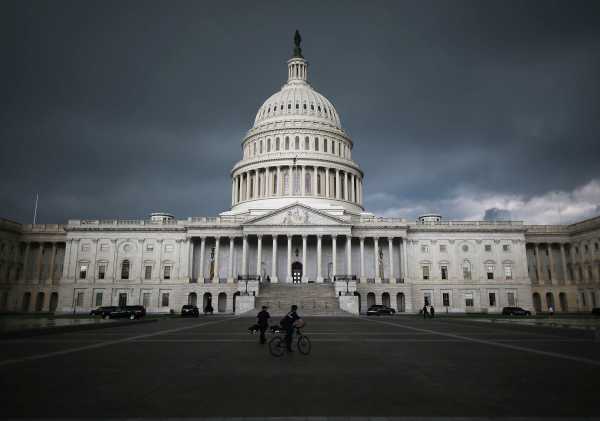
Sometimes there are simple solutions to complicated problems.
And I, personally, have long thought that the thorny complex of issues related to polarization and the increasing bitterness of American politics might have a relatively simple solution: multi-member House districts.
The way this would work is that most states, instead of being split into one or two or three or four or eleven House districts would just operate as a unitary electoral zone. Voters would vote via ranked-choice voting, and you then end up with a proportional result. (The mechanics of how you do the tally are a little complicated, but the actual voting is easy — you just rank as many candidates as you want in order of preference.)
Consequently, you wouldn’t have anything like the current situation anymore, where 30 percent of the voters in Massachusetts backed Trump and 30 percent of the voters in Oklahoma backed Clinton, but Massachusetts returns a uniformly Democratic House delegation and Oklahoma returns a uniformly Republican one.
Relatedly, but not identically, you’d basically eliminate gerrymandering as a factor in American public affairs. The biggest states, like California, Texas, Florida, New York, and maybe Illinois, Pennsylvania, and Ohio, would probably need to be split into two or three (or maybe even four for California) states; boundary-drawing would matter there, but only a little.
One quick result of this would be that no seat is truly safe. Some states would be reliably conservative and others reliably liberal, but any given member would need to retain a reputation for being hard-working and honest to avoid falling just off the bubble.
But more importantly, without requiring anyone to change their minds about anything, or suddenly become nicer people, this reform would do a lot to help us back away from conducting politics on a quasi-war footing.
Breaking down the party system
But the bigger useful change is that under proportional House elections, third parties would win at least some of the seats.
Right away, the Democratic Socialists of America might run its own candidates and pick up a few here and there. We’d see a few Libertarians win too. But also, a guy like perennial candidate Greg Orman could stop running vanity statewide races in Kansas and win a House seat. Consistently endangered House members like Carlos Curbelo in Florida, Collin Peterson in Minnesota, and Will Hurd in Texas might split off and run under some kind of moderate banner.
The immediate upshot is House control would likely end up involving some kind of power-sharing arrangement. That could usefully prevent the current scenario, where the president’s party holds concurrent majorities in Congress and, consequently, oversight just shuts down entirely.
America’s other elections would still happen under nonproportional rules. Still, once you had a few minor parties in Congress, it might be tempting for a couple of senators who are bad fits for their current party — think of Alaska Republican Sen. Lisa Murkowski and West Virginia Democratic Sen. Joe Manchin — to jump ship.
You could end up with a situation where the party system simply varies from state to state. Some kind of Manchin/Murkowski party might end up playing the role of not-Republicans in natural resource extraction states where the national Democratic Party brand is bad.
And if third parties had clout in Congress, that might inspire at least some states to adopt proportional rules for state legislatures too. In theory, at least, a state could even adopt a parliamentary system.
I’m not personally hankering for a third party to vote for, as I have some fairly banal Democratic Party views these days. But I still think it would be a healthy development for the country.
We are too big and too diverse for a single unified vision to garner majority support, so the system objectively incentivizes President Donald Trump’s successful strategy of turning politics into a cynical game about beating the other side.
It would be better to have a country where everyone is voting for a party they are genuinely enthusiastic about, and then because no such party commands majority support, the leaders need to do some bargaining.
This is an abbreviated web version of The Weeds newsletter, a limited-run newsletter through Election Day, that dissects what’s really at stake in the 2018 midterms. Sign up to get the full Weeds newsletter from Matt Yglesias, plus more charts, tweets, and email-only content.
vox-mark
The Weeds newsletter
Subscribe
By signing up, you agree to our Privacy Policy and European users agree to the data transfer policy.
For more newsletters, check out our newsletters page.
Sourse: vox.com






